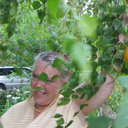
Rebecca LastNatural Resources Canada | NRCan · Lands and Minerals Sector
Rebecca Last
B. Com. Hon. plus courses in horticulture to qualify as Master Gardener
About
28
Publications
11,798
Reads
How we measure 'reads'
A 'read' is counted each time someone views a publication summary (such as the title, abstract, and list of authors), clicks on a figure, or views or downloads the full-text. Learn more
0
Citations
Introduction
Retired from Natural Resources Canada in 2021, Rebecca's research now focuses on gardening, plant science and food security. She volunteers with Master Gardeners of Ottawa-Carleton, the Ottawa Horticultural Society and the Michelle Heights Community Garden, Ottawa, gives gardening talks across Ontario and shares her passion for the science behind gardening via her blog, Gardening at Last (https://gardeningatlast.ca/).
Publications
Publications (28)
Aimed at gardeners, this presentation offers practical tips to mitigate and adapt to climate change
Published in the quarterly newsletter of the Ottawa Horticultural Society, this article is one of a series designed to introduce the OHS Board to members.
This talk reflects on things learned from 30 years of gardening in the same small suburban space.
This presentation is an introduction to seed saving for home gardeners. The emphasis is on saving seeds from annual food plants and flowers.
An introduction to community gardening, written for the quarterly newsletter of the Ottawa Horticultural Society
This poster addresses garden maintenance strategies that are friendly to wildlife, especially beneficial insects and other invertebrates. It is intended for a general gardening audience. Many thanks to Douglas Tallamy and Lorraine Johnson for providing reviews.
Using the author's garden renovations as examples, the talk provides an overview of how and what to consider in renovating a garden. What are the key questions you need to ask yourself? What existing factors need to be taken into consideration? How to frame and achieve your objectives for your garden renovation? How to scope the reno? What can you...
Personal musings on having gardened in the same place for nearly 30 years.
This presentation is intended for a general audience of home growers and shares my personal experiences growing over 100 varieties of heritage tomato over the past 20 years in Ottawa, Canada. Challenges include sandy soil with few to no nutrients and a short growing season (Canada hardiness zone 4b).
This presentation is intended for home Canadian gardeners and offers advice on how to assess and manage water use in the home garden.
Accessible information about botanical and cultivar names for plants. Published in a local seniors' magazine.
A primer for the general public on Canadian plant hardiness zones.
This presentation offers easy vegetables that can be grown in limited spaces, such as a townhouse garden or in containers on a balcony
An introduction to organic gardening, with emphasis on understanding and building soil. Other topics include basic tools, composting, companion planting and crop rotation.
This article is a fluff piece, entirely lacking in any scientific value. It was written for a local seniors' magazine.
Good for spring presentations, this talk addresses the issue of selecting the right plant for the right location. It offers a review of plants that have thuggish tendencies or other unfortunate outcomes when improperly sited.
This talk and demonstration describes ways to preserve the harvest and covers: drying (drying herbs; dehydration of fruits and vegetables); cooking; canning (Preserves – jams, jellies, chutneys); vinegars; freezing; and curing.
By providing food, water and shelter for wildlife, and participating in wildlife habitat certification schemes, gardeners can make a significant positive contribution to preserving biodiversity. Use of native plants is optional, but paying attention and being a "messy gardener" help to promote better habitat.
Over fifteen years of personal experience growing heritage, mostly open-pollinated, varieties heritage tomatoes is summarized, with comments on trial methodology and results.
There is both joy and challenge in gardening for wildlife. Gardening for wildlife requires different approaches and strategies -- even a different mind-set! -- from regular gardening. This talk addresses the characteristics of plants and garden design that will help you create a wildlife-friendly garden, strategies for including food, shelter, and...
Understanding nature's rhythms as a tool to better managing pests in the home garden.
Power Point presentation on edible (mostly) perennial plants that are easily grown in Canada grow zone 4b.
This presentation, which was prepared for the 2016 lecture series of Friends of the Central Experimental Farm, begins by distinguishing between plant guilds and companion planting. It encourages listeners to think in terms of modifying their conventional gardening strategies to begin creating a self-sustaining ecosystem that will become more produc...
Observation is a key tool for gardeners. Paying attention to interactions between different elements of the garden, and wildlife visitors is not only a fascinating aspect of gardening; it can also save the gardener time and effort, and achieve better results.
Article on techniques for the home gardener starting seeds indoors and out. Published on-line in The Edible Garden, December 2015 (http://www.mgottawa.ca/pgm-download_media.php?name=TEG_December_2015.pdf)
An overview of this large plant family, with focus on potatoes, tomatoes and ground cherries.
This presentation discusses incorporating edibles, particularly perennial edibles into your landscape. Reasons for growing food in your garden, a discussion of perennial and ornamental edibles, and a brief introduction to permaculture are included. There is also a section on techniques for measuring your productivity, tips on using what your grow a...
Have you ever wondered why some years are really bad for earwigs? Or why all the blooms in your garden peak just before or just after, but never during, that special occasion you were planning? The answer may be found in phenology. Phenology is the study of periodic plant and animal life cycle events and how these are influenced by seasonal and mul...
Questions
Question (1)
Hello Jinfeng Chang,
I plan to include a summary of your research on grasslands' contribution to climate change in my upcoming gardening newsletter. Email me on Rebecca.Last@Canada.ca if you would like to receive a free copy. Best wishes, ~Rebecca Last
